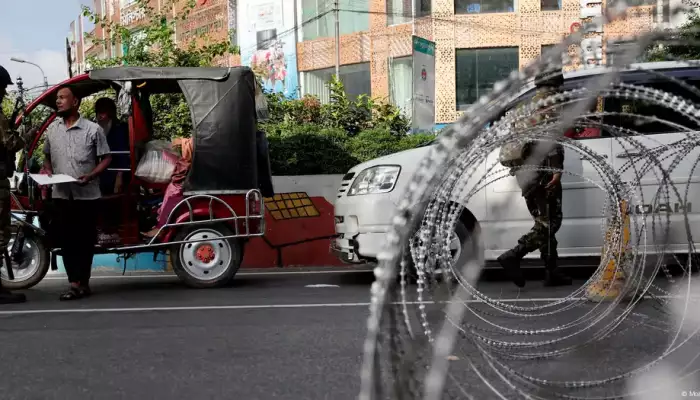
Bangladeshi authorities extended a curfew on Sunday as the country's Supreme Court was due to rule on government job quotas that this week sparked nationwide student-led protests.
Local media reported that a curfew imposed late on Friday will now run until 3 p.m. local time (0900 GMT/UTC), after the hearing, then continue until further notice after a two-hour break for people to take in supplies.
Internet and text message services in Bangladesh have been suspended since Thursday amid the protests, and universities and colleges have been closed since Wednesday.
The Supreme Court is to rule on quotas for much-sought-after civil service jobs that, among other things, foresee reserving 30% of positions for the families of people who fought for independence from Pakistan in the so-called Bangladesh Liberation War in 1971.
The rules, which were reinstated by a court last month after being scrapped by the government in 2018, have caused widespread anger, particularly among the country's young people, who make up around a fifth of the population.
The Supreme Court suspended the decision after a government appeal and agreed to bring forward to Sunday a hearing originally scheduled for August 7.
The demonstrations in the past week, led largely by university students, were the largest since Prime Minister Sheikh Hasina was reelected for a fourth successive term this year in a vote without any real opposition.
Critics say the quotas benefit families loyal to Hasina, 76, who has ruled the country since 2009.
Rights groups accuse Hasina's government of misusing state institutions to consolidate its hold on power and suppress all dissent, including by the extrajudicial killing of opposition activists.
Anger at the quotas is especially rife among young graduates, who are facing an acute jobs crisis.
Soldiers are currently patrolling cities across Bangladesh, particularly the capital, Dhaka, following the protests, which saw deadly clashes between security forces and demonstrators.Some observers say that public anger will continue at the government even if the top court decides to rescind the quotas.